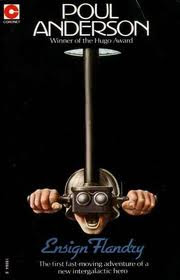The purpose of military intelligence is to understand the psychology and motivations of an enemy. It would be fatal to treat compromising and uncompromising enemies identically. In Poul Anderson's Ensign Flandry, Lord Hauksberg assumes, without taking the trouble to find out, that there is a "reasonable" element among the Merseian High Command whereas Max Abrams of Naval Intelligence, having studied the Merseians, knows that they do not reason like Terrans and treats them accordingly. This makes Abrams a warhawk according to Hauksberg.
In SM Stirling's The Stone Dogs (New York, 1990), the Alliance plan is to demonstrate overwhelming power to the Draka, then to demand that they disarm and gradually reform. A Japanese scientists knows that:
the old Japanese military caste, if shown the power of nuclear weapons, would have surrendered and sacrificed themselves for the nation;
to the Draka, their caste is their nation - if that were to be destroyed, then they would destroy the world in retaliation.
So there is an important difference between the Japanese and the Draka. The scientists, knowing this, begin to act independently of their government. Another factor is that the Draka clearly have some comparable secret weapon and will not hesitate to use it. Delay is not an option.
Although we understand the reference to Japan, details differed in the Draka timeline:
"...the rain of fission weapons that had brought down the Japanese Empire towards the end of the Eurasian war was still a sensitive subject." (p. 413)

3 comments:
Kaor, Paul!
I agree that among the purposes of any military intelligence system is gaining a correct and realistic understanding of the psychology and motivations of an enemy. And to determine whether that enemy is implacably uncompromising or is willing to compromise. I would ADD, however, that one's military intelligence also needs to discover the capabilities of an enemy: his weapons, tools, instruments, etc. But I'm sure you would agree with that!
Sean
Sean,
Yes but that is the more obvious part:
What weapons does the enemy have?
In what circumstances will he use them OR stop using them?
There is an interesting difference between Japs and Draka.
Paul.
Paul.
Kaor, Paul!
And I agree with the validity of the questions you asked and how the Japanese, amply brutal as they could be, were different from the Draka.
Another point: if one of two contending powers falls seriously behind its rival in military technology, the rival might be tempted to be LESS willing to compromise. To be more willing to take risks.
Sean
Post a Comment